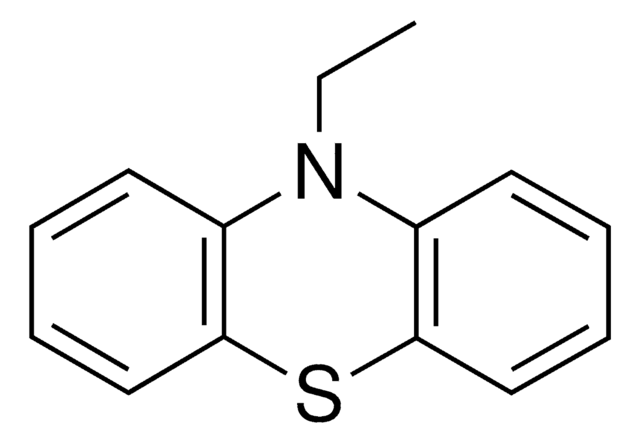239607
Bromoethane
ReagentPlus®, ≥99%
Synonym(s):
Ethyl bromide
About This Item
Recommended Products
vapor density
~3.75 (vs air)
Quality Level
vapor pressure
25.32 psi ( 55 °C)
7.54 psi ( 20 °C)
product line
ReagentPlus®
Assay
≥99%
form
liquid
autoignition temp.
952 °F
expl. lim.
11.25 %
refractive index
n20/D 1.425 (lit.)
bp
37-40 °C (lit.)
mp
−119 °C (lit.)
density
1.46 g/mL at 25 °C (lit.)
functional group
alkyl halide
bromo
SMILES string
CCBr
InChI
1S/C2H5Br/c1-2-3/h2H2,1H3
InChI key
RDHPKYGYEGBMSE-UHFFFAOYSA-N
Looking for similar products? Visit Product Comparison Guide
Application
- Inhibition of hydrogen-air mixtures by using chemical vapor additives: Compares the effectiveness of bromoethane and other brominated hydrocarbons in minimizing hydrogen hazards (SK Das et al., 2024).
Legal Information
Signal Word
Danger
Hazard Statements
Precautionary Statements
Hazard Classifications
Acute Tox. 4 Inhalation - Acute Tox. 4 Oral - Carc. 2 - Flam. Liq. 2 - Ozone 1
Storage Class Code
3 - Flammable liquids
WGK
WGK 1
Flash Point(F)
-9.4 °F - closed cup
Flash Point(C)
-23 °C - closed cup
Personal Protective Equipment
Choose from one of the most recent versions:
Already Own This Product?
Find documentation for the products that you have recently purchased in the Document Library.
Customers Also Viewed
Our team of scientists has experience in all areas of research including Life Science, Material Science, Chemical Synthesis, Chromatography, Analytical and many others.
Contact Technical Service
















